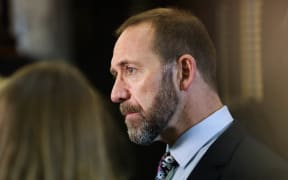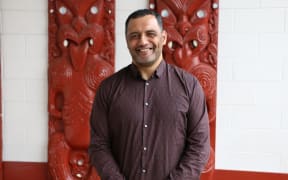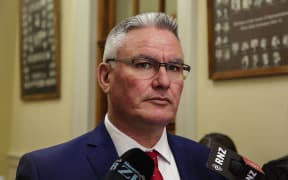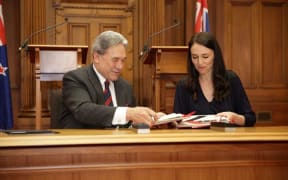What's happening with Whānau Ora, Crown-Māori relations and Treaty Settlements?
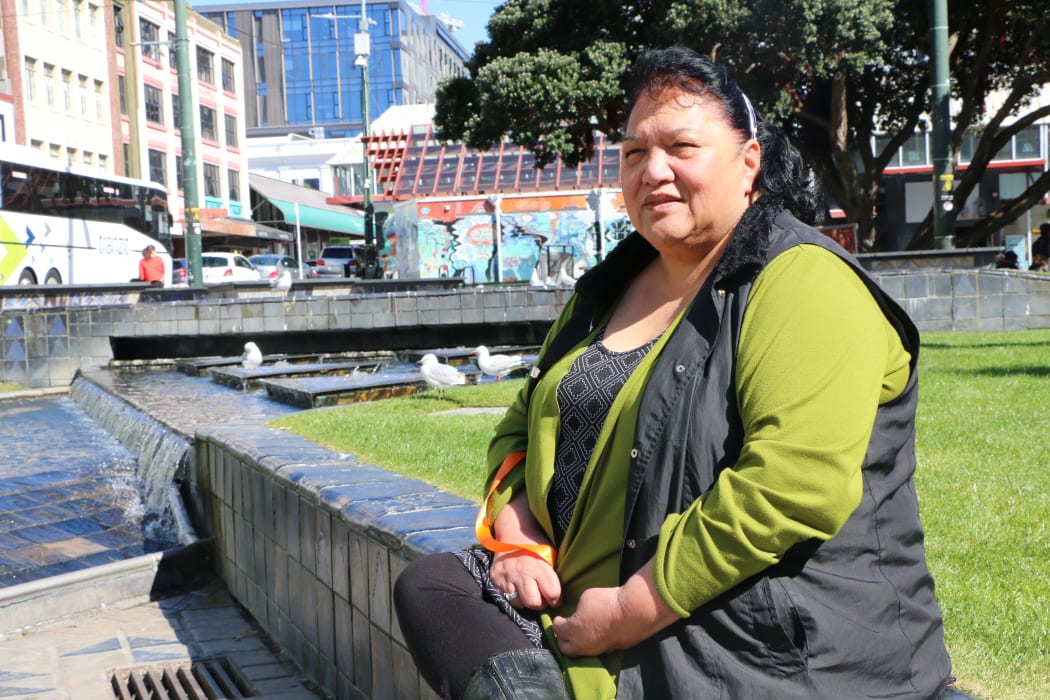
Jenny Langford-James says the cost of living is too high but she doesn't blame the government. Photo: RNZ / Leigh-Marama McLachlan
These days it costs Jenny Langford-James $227 dollars a week to train from Levin to Wellington for work and she said her power bill's almost tripled.
She is not holding it against the government, but said things have gotten worse for her in the past year.
"Here I am struggling, paying $227 to get to work and $300 for my rent - by the time I pay all my food and everything, I have got nothing left," she said.
Ms Langford-James tried to find work in Horowhenua to cut the cost of transport but she couldn't, and she said housing was too expensive in Wellington.
"I am actually just struggling to get into work just to pay for everything."
At the end of Lukes Lane off Wellington's main drag, vulnerable whānau and the homeless seek help at Ngāti Kahungunu ki Poneke Community Services.
Chief executive Ali Hamlin-Paenga said numbers are growing and many of them are Māori.
"There is more of our whānau living in cars, more of our whānau living in emergency housing - that is not good for anyone's wellbeing," she said.
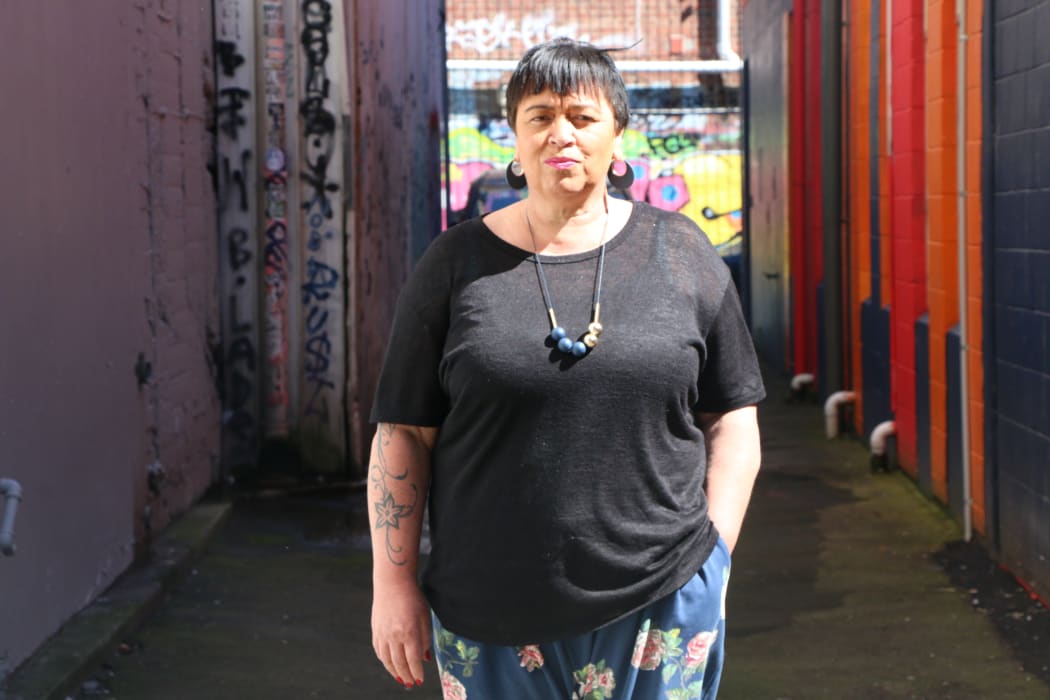
CEO of Ngāti Kahungunu ki Pōneke Ali Hamlin-Paenga says homelessness is getting worse Photo: RNZ / Leigh-Marama McLachlan
She said she has seen a whānau of seven living in a motel unit - something becoming too familiar for children.
"It is becoming normalised. We hear tamariki on some days saying 'oh what motel are you staying at'?"
In the past year, there has been a greater growth of Māori in paid employment than non-Māori, and Māori are taking home an extra $9 a week ... but that is still far short of the total average increase of $50 a week.
While it may not be targeted specifically at Māori, the increase in benefits through the Families Package is helping many lower to middle income whānau.
About 18,000 Māori families a year will receive the Best Start Payment for newborns, and about 138,000 Māori have received Winter Energy Payments.
Māori Communications Advisor Aroha Tanirau said not much has changed for her but she is happy to see where the money is going.
"The programmes that Labour has brought in for some of the younger families is hugely beneficial - it is going to make a big difference for them," she said.
"But the cost of housing is still too expensive, the cost of food is going up. I feel really sorry for some families who don't have other whānau they can rely on."
The incoming president of the Victoria University of Wellington Students' Association Tamatha Paul said her Māori peers are better off this year than last.
She said the $50 increase in Student Allowance/Loans, and scrapping letting fees have been welcome changes, but more could be done for mental health.
"The biggest - not let down - but kind of expectation young people and students had was around their policy around mental health," she said.
"We were really hopeful that when the Labour government came in that we would have more of a chance to be better resourced."
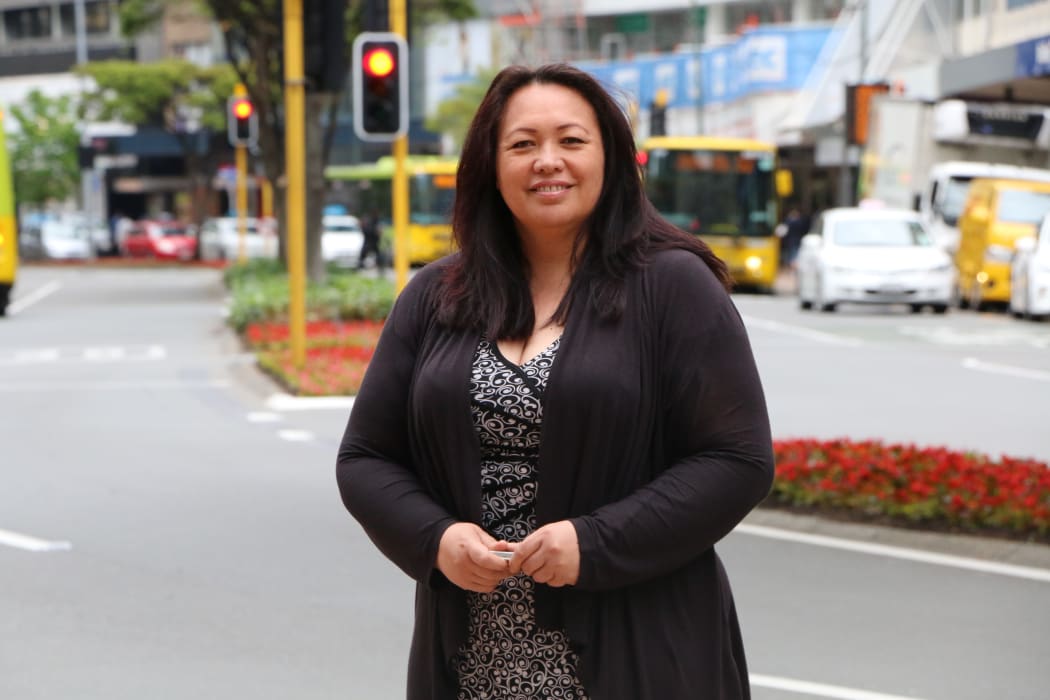
Aroha Tanirau says the Labour-led government is doing well for Māori and will do more in time. Photo: RNZ / Leigh-Marama McLachlan
Where are all the Māori policies?
Ali Hamlin-Paenga has been the CEO of Ngāti Kahungunu ki Pōneke for a year and she is confident that things are on the up.
She, and many others, are particularly keen to see what is happening with Whānau Ora.
The flagship Māori policy went under review in April - with no new money last Budget. A report on the review will be out on 5 November.
"Something needs to happen there - it needs to happen because the way in which we work, we get better outcomes - our whānau connect."
It took a year for Minister Kelvin Davis to shed any real light on his new Crown-Māori Relations portfolio and what his job would be.
Last month, he announced Te Arawhiti, a new unit which will oversee the public service's work with Māori.
The chair of the Waitangi Tribunal, Chief Judge Wilson Isaac of the Māori Land Court, said he had not a lot to do with it, but it is progress.
"I think it is a good thing - I welcome it," he said.
It is unclear how the unit will run and there are questions about how Te Arawhiti will fit in with existing agencies, such as the Tribunal and Te Puni Kōkiri.
"It is probably an interesting division.
"I would like to perhaps sit down with the Minister ... and discuss how we interface."
Treaty Negotiations Minister Andrew Little has travelled New Zealand and Australia to make headway on the stalled Ngāpuhi settlement.
He has been under fire over the Hauraki Collective settlement, with two protests erupting on Parliament grounds this year.
In its last two years, National reached 30 settlement milestones per year. Including things like gaining mandates, deeds signed, legislation enacted.
Since June, Minister Little has sealed four milestones, but plans to reach another 49 by the middle of next year.
The Labour Party won all seven Māori seats however concerns have been raised about the visibility of the Māori MPs.
Ms Langford James said she wants to see more from them in the remainder of the term.
"There is a lot of gate keeping that is going on. I think our whānau that are in the Māori caucus really do need to get it together and work kotahi together.
"I know they will be speaking up for us, but they have to get through a lot of other people."
Feedback from Māori is that the Labour-led Government have had their work cut out for them undoing the wrongs of the National government.
Although there have been few new policies directly for Māori this past year, people are happy that the initial focus is on supporting vulnerable families.
They say not a huge amount has changed so far, but they're optimistic that more will be achieved for Māori in the next two years.

